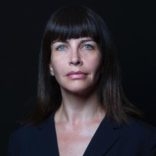TEL AVIV (JTA) – Some invitations should not be turned down. Such is the invitation issued by the World Jewish Congress a few weeks ago when it decided to open up the elections for the presidency of the World Jewish Congress to all. It has been a long time, if ever, since a major Jewish organization opened itself so completely to elections. Almost all Jewish organizations today are governed by professionals who keep their top positions amid an ever-changing gallery of soon-forgotten lay leaders or by political nominees who are sent by their Israeli-based parties to capture political ground.The internal machinations of nominations for these top positions may hold fascination for the few involved, but they already have had the adverse effect of alienating many from organized life and leading many Jews, especially younger ones, to question who has given whom the right to speak in their name. Whether it truly intended to do so, or whether this was merely a ploy, the fact remains that the WJC took a bold step by allowing elections to take place. And good elections are of necessity contested ones. Contested elections keep candidates on their toes, forcing them to present their vision, argue their case, understand the problems facing the organization and propose solutions.Contested elections tend to bring more people into the fold, involving the media as well as voting members, as the candidates try to get a hearing for their message. As much as there is disenchantment with elections around the world and their manipulation by spin-makers, elections when properly carried out are still the best opportunity for open and democratic debate about the future among members of a collective. My candidacy for the WJC presidency is as much about the process of elections than about their outcome. It is about jolting the candidates out of a comfortable process of assured nomination to one in which they are requested to debate the issues. It is about making sure that the WJC call to hold open elections does not go unheeded and turn into the sham that WJC detractors expect it to be. The WJC is in crisis not because it failed to pursue the most important agenda items for the Jewish world. It is in crisis not because it failed to proclaim the danger of Iran’s nuclear intentions or forcefully warn against rising anti-Semitism.It is in crisis because it failed to govern itself properly and legitimately. It is the governance that requires deep fixing and can only be fixed by those who see a new kind of organization emerging. Anticipating this crisis, many young Jewish activists, including many from KolDor, have come together in recent years to chart a new road ahead for the WJC – a road in which the WJC becomes the most representative Jewish organization, a real World Congress of the Jewish People, where communications technology serves to allow multitudes to have a voice in shaping their collective future.There is no reason why the WJC cannot become a global membership organization in which hundreds of thousands – if not millions – of Jews around the world proclaim their membership of a global peoplehood and community by active participation in an ongoing, open democratic debate. And just maybe, such a debate may show that as much as Jews have fears for the future, they also have hope and seek to pursue an agenda that is about healing the world and contributing to alleviate the suffering of others. The WJC has taken the first step toward realizing this vision by opening up the elections for the presidency to all. Having been animated by this vision for quite some time, to refuse such an invitation to put it forth was not an option. Einat Wilf is an Israeli writer, thinker and political activist. She has served as the foreign policy adviser to Israel’s vice premier Shimon Peres, a consultant with McKinsey & Co. and a managing partner with Koor Corporate Venture Capital. Wilf, a Kol Dor member, is a fellow with the Jewish People Policy Planning Institute and has recently completed a project on mapping future scenarios for the Jewish people in 2030. Wilf received her bachelor’s degree in government and fine arts from Harvard University, her MBA from INSEAD and is completing a doctorate in political science at Cambridge University, writing her dissertation on the World Jewish Congress in the 1990s.
JTA has documented Jewish history in real-time for over a century. Keep our journalism strong by joining us in supporting independent, award-winning reporting.






